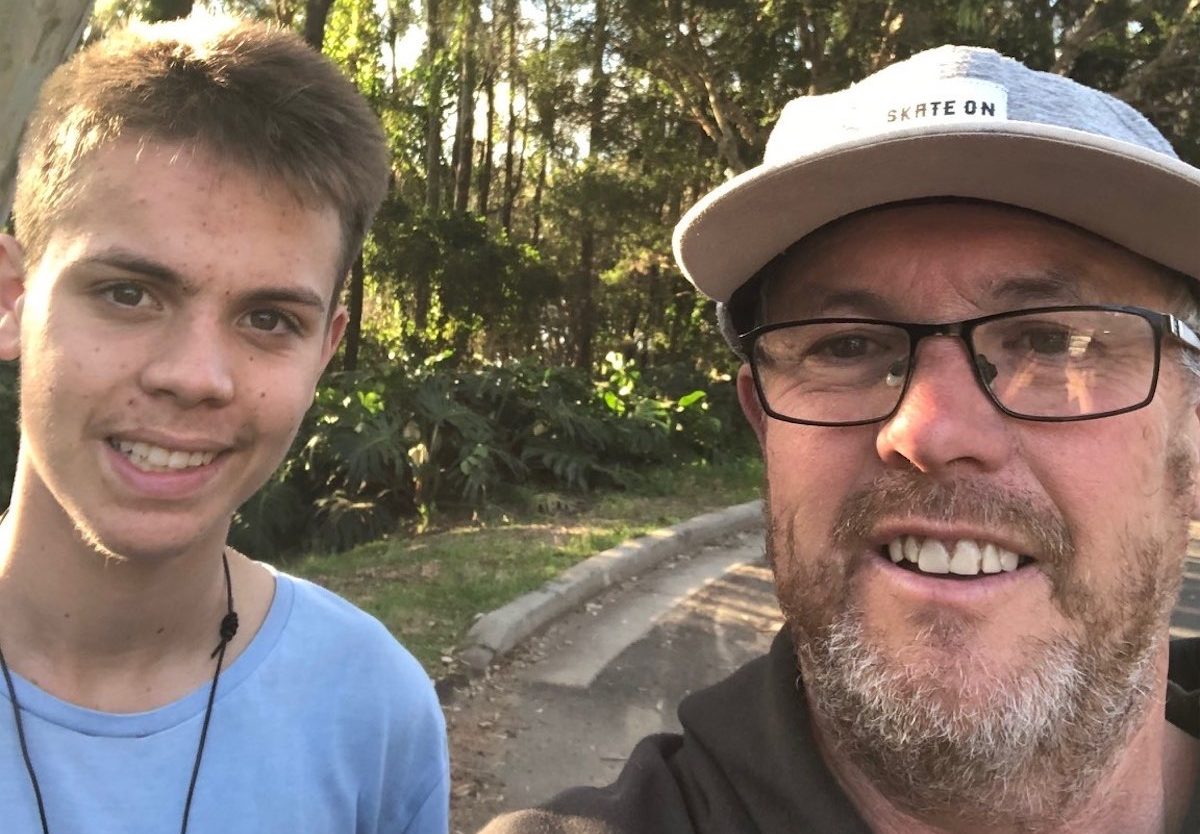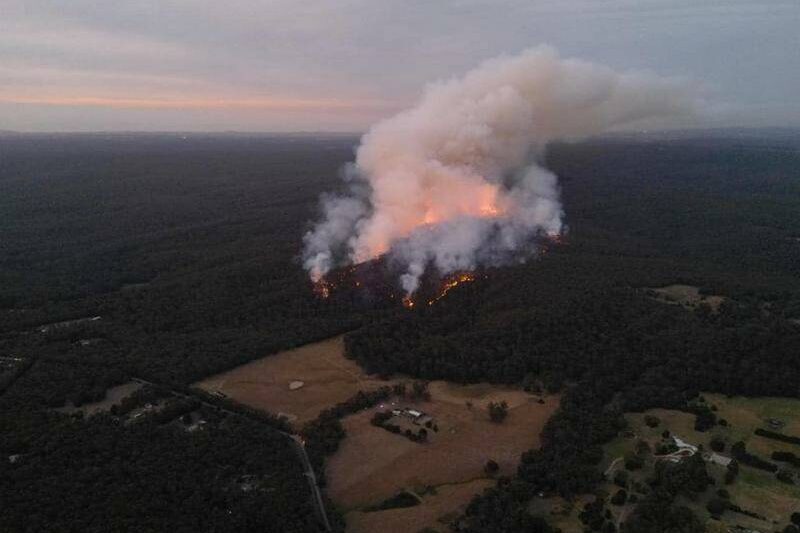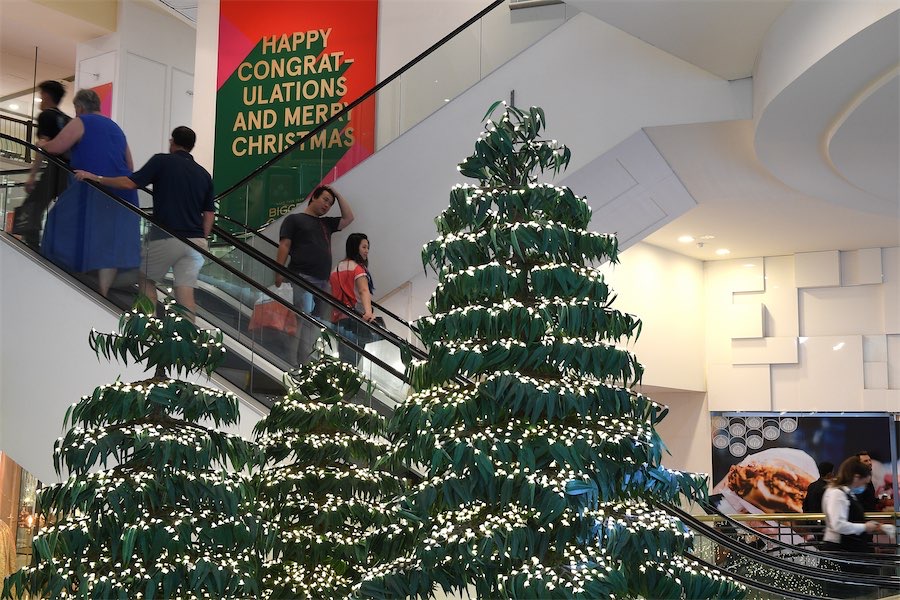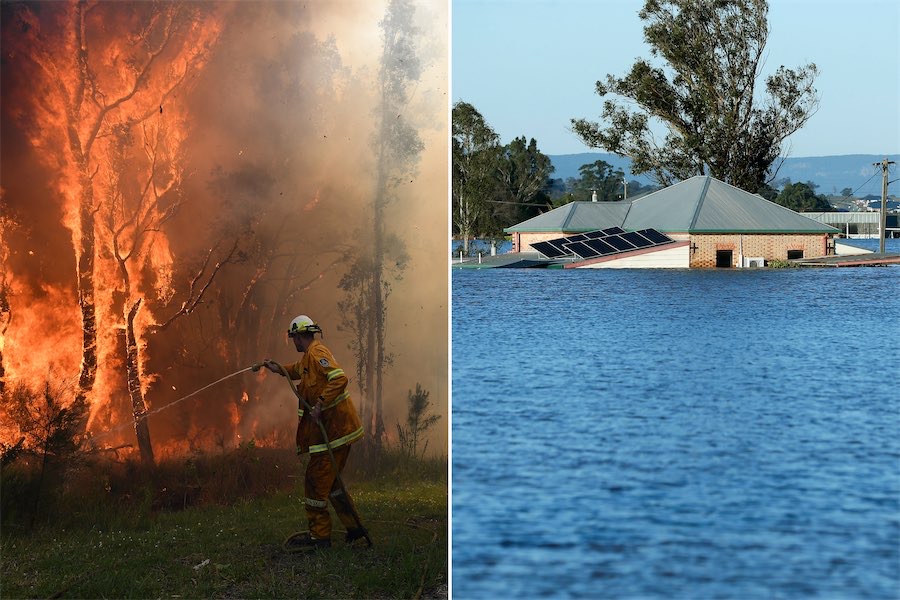
WHEN 17-year-old PJ Lennon arrived at the “Rites of Passage” camp in Byron Bay, the first thing he had to do was lock his phone in a wooden box.
“I’ve basically never gone a day without my phone so I was nervous about it,” said PJ who, with his father Peter, had just driven 10 hours from Canberra for the camp.
There were about 30 other fathers and sons, who had come from all over Australia for the five-day ceremony that serves as a stepping stone for the boys’ transition into manhood.
But to PJ’s surprise, he said the second he locked his phone in the box he was “perfectly fine”.
Apart from only wanting it to check in on his girlfriend, he described the five days without technology as “eye-opening”.
Over the course of the camp, Peter and PJ shared stories with the other men, underwent challenges and took time to reflect away from the distractions of day-to-day life.
“You could tell at the start people were nervous, but by the end a real sense of community had formed,” said PJ.
The “Rites of Passage” camps have been taking place throughout the world for more than 20 years and now, in large part inspired by the experience that he and his son shared, Peter Lennon is bringing them to Canberra.
“I think we all know something is going on with our boys,” says Peter, who works with the Mental Health Foundation.
“There’s high levels of mental illness, suicide rates are high, you’ll often talk to parents who say their boys are all of a sudden withdrawn, living in their bedrooms.
“We see issues with domestic violence and sexual assault a lot.
“A lot of this is because we have men who are physically men, but they still have all the boyhood behaviours.”
Peter says the camp is about reclaiming a ceremonial rite of passage akin to the way indigenous societies celebrate the transition into manhood.
“For most of history, boys were raised by the community and had a range of male mentors and uncles to help guide them during this transition,” says Peter.
“But today, in western society this is rarely the case, with boys being raised by extremely hard-working parents just trying to make ends meet.
“There’s an African proverb that says ‘the child who is not embraced by the village will burn it down to feel its heat’ meaning that children desperately need connection, love, and community.
“If these needs aren’t met, they’ll cry out for help and even resort to risk-taking behaviour and the Rites of Passage movement is about the community stepping up and reclaiming their responsibility to raise the community’s kids.”
In Canberra, the camp will be held at the Greenhills Conference Centre in Stromlo, situated by the Murrumbidgee River and overlooking the Cotter valley.
“It’s really about knowing you’re being removed from society to undergo a transition,” says Peter.
“The boys are separated from their normal life, the camps typically take place in the bush, there’s a real atmosphere of reverence.”
One of the most powerful elements of the camp, says Peter, is the opportunity for the fathers and sons to share stories, many of which they’ve never heard from one another before.
“Try telling a teenager how to be a man in this world or try telling them how to live their life, it just doesn’t work,” he says.
“That’s why we use storytelling instead, and why it’s such a powerful tool.
“Some of the stories we tell are mythical with a lesson, some are personal stories that some boys may have never heard from their father before.
“There are topics covering grief, connections with their mother or father, relationships, sex, and all of it happens in a safe space.”
Peter says the boys also undertake a challenge to help them realise their strength and give them resources to draw on for when they face difficult times in their future.
Afterwards, an honorary ceremony takes place where the father or another important male figure steps up to tell the boy the strengths they see in them.
“I cried when I was honouring PJ, I just could not get my words out,” says Peter.
Also deeply moved by the ceremony, PJ will be helping Peter with the Canberra camps as a “returning young man”, helping to foster conversation and guiding those on their first experience.
“I learnt a lot about myself, my family and life and it was really nice to feel like an adult on the camp,” says PJ.
“I think it really can help other boys and men, especially those who could be in a rough spot.”
Originally planned to begin in Canberra this month, covid has delayed the camp until April.
But with the added pressures that the pandemic has put on young men, Peter says the lessons of the “Rites of Passage” camp have never been more relevant.
“What I think these camps show is that, given the right space, men actually are willing to share very easily and be vulnerable with one another,” he says.
More information at facebook.com/reconxted or from peter.lennon@mhf.org.au
Who can be trusted?
In a world of spin and confusion, there’s never been a more important time to support independent journalism in Canberra.
If you trust our work online and want to enforce the power of independent voices, I invite you to make a small contribution.
Every dollar of support is invested back into our journalism to help keep citynews.com.au strong and free.
Thank you,
Ian Meikle, editor




Leave a Reply